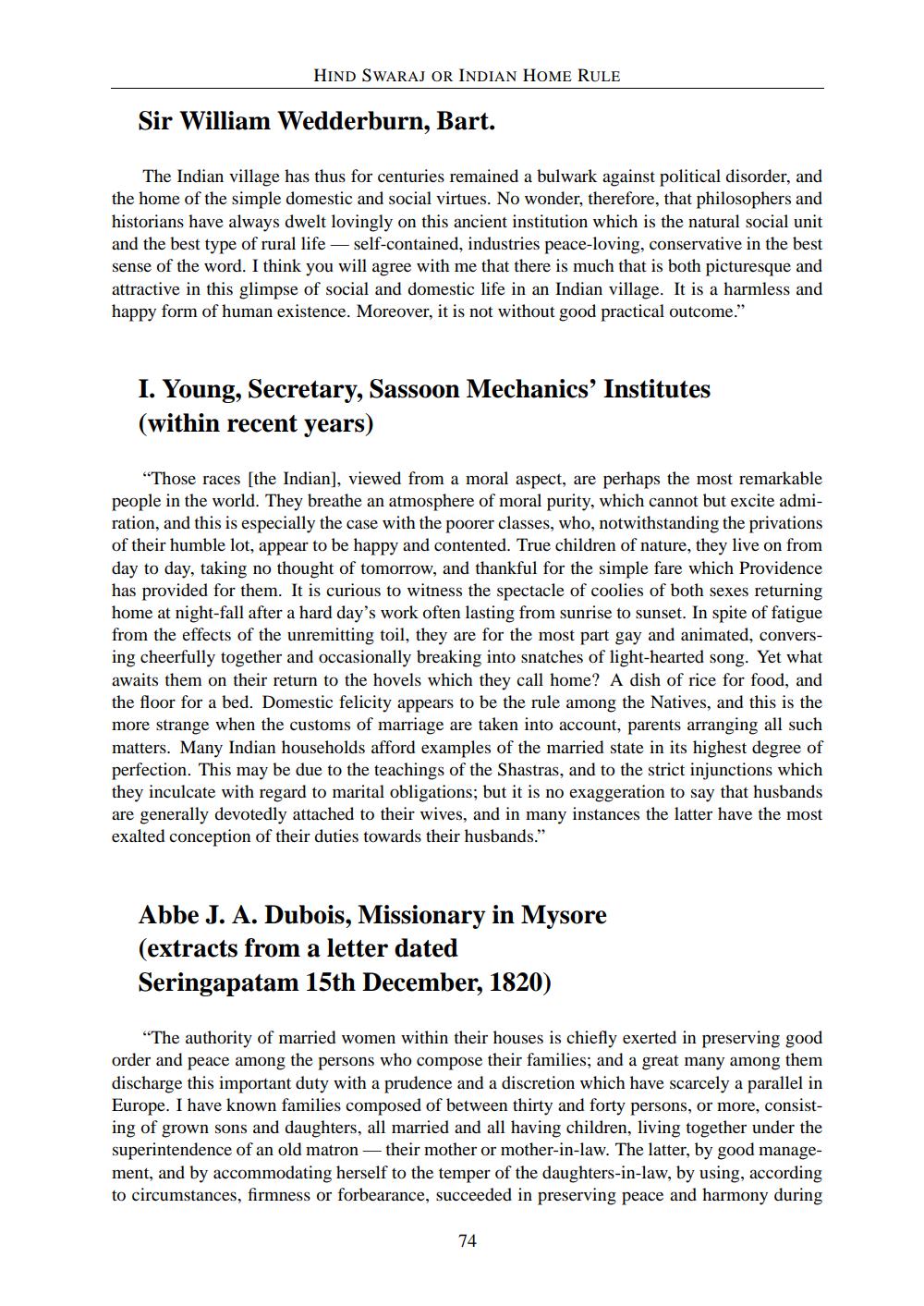________________
HIND SWARAJ OR INDIAN HOME RULE
Sir William Wedderburn, Bart.
The Indian village has thus for centuries remained a bulwark against political disorder, and the home of the simple domestic and social virtues. No wonder, therefore, that philosophers and historians have always dwelt lovingly on this ancient institution which is the natural social unit and the best type of rural life — self-contained, industries peace-loving, conservative in the best sense of the word. I think you will agree with me that there is much that is both picturesque and attractive in this glimpse of social and domestic life in an Indian village. It is a harmless and happy form of human existence. Moreover, it is not without good practical outcome."
I. Young, Secretary, Sassoon Mechanics’ Institutes (within recent years)
"Those races [the Indian], viewed from a moral aspect, are perhaps the most remarkable people in the world. They breathe an atmosphere of moral purity, which cannot but excite admiration, and this is especially the case with the poorer classes, who, notwithstanding the privations of their humble lot, appear to be happy and contented. True children of nature, they live on from day to day, taking no thought of tomorrow, and thankful for the simple fare which Providence has provided for them. It is curious to witness the spectacle of coolies of both sexes returning home at night-fall after a hard day's work often lasting from sunrise to sunset. In spite of fatigue from the effects of the unremitting toil, they are for the most part gay and animated, conversing cheerfully together and occasionally breaking into snatches of light-hearted song. Yet what awaits them on their return to the hovels which they call home? A dish of rice for food, and the floor for a bed. Domestic felicity appears to be the rule among the Natives, and this is the more strange when the customs of marriage are taken into account, parents arranging all such matters. Many Indian households afford examples of the married state in its highest degree of perfection. This may be due to the teachings of the Shastras, and to the strict injunctions which they inculcate with regard to marital obligations; but it is no exaggeration to say that husbands are generally devotedly attached to their wives, and in many instances the latter have the most exalted conception of their duties towards their husbands."
Abbe J. A. Dubois, Missionary in Mysore (extracts from a letter dated Seringapatam 15th December, 1820)
“The authority of married women within their houses is chiefly exerted in preserving good order and peace among the persons who compose their families; and a great many among them discharge this important duty with a prudence and a discretion which have scarcely a parallel in Europe. I have known families composed of between thirty and forty persons, or more, consisting of grown sons and daughters, all married and all having children, living together under the superintendence of an old matron — their mother or mother-in-law. The latter, by good management, and by accommodating herself to the temper of the daughters-in-law, by using, according to circumstances, firmness or forbearance, succeeded in preserving peace and harmony during
74




